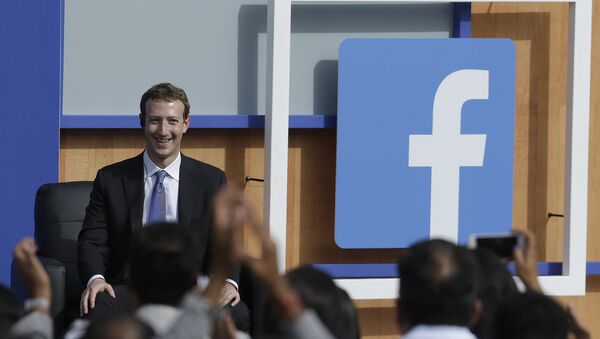Facebook and Instagram will allow their users to "turn off" all electoral or political ads from candidates, Super PACs, and other organisations that have the "paid for by" political disclaimer on them ahead of the 2020 presidential vote.
'Facebook's New Measure Will Affect Campaign Strategies'
The tech giant announced the new feature over six months ago, specifying that it would deploy the political ads control "starting in the US early this summer, eventually expanding this preference to more locations".
"This will be hugely influential in shifting campaign strategies", suggests Rory McShane, a Republican political consultant and strategist. "Facebook is currently the most effective means of digital political campaigning by far, so digital strategists may have to shift methods".
Discussing the tech giant's apparent motivation, McShane opines that Facebook is "a private company and free to make whatever decision is best for their users".
However, Joseph Oliver Boyd-Barrett, professor emeritus at Bowling Green State University, deems that Facebook's move was prompted by mounting criticism over the company's "refusal to do anything about disinformation and propaganda in political advertising, including political communication from President Donald Trump".
"Facebook's new measure on political advertising leaves very murky the whole issue of bots and trolls and other social media shenanigans that plague today's communication space, and the extent to which Facebook has or has not managed to get all of this under control", the academic presumes.
Last week, the Joe Biden campaign accused Facebook of continuing "to amplify misinformation and let candidates pay to target and confuse voters with lies", urging the tech company to fact-check election-related material and "enforce voter suppression rules against everyone – even the president".
However, in response the tech company said that "[it] will protect political speech, even when [it] strongly disagree[s] with it", referring to Trump's executive order that obligated federal agencies to prevent social media sites from engaging in activities like fact-checking political statements. Trump's recent decision was triggered by Twitter "tagging" the president's posts with fact-checking warnings.
Between the Devil and the Deep Blue See?
It appears that Facebook has found itself between a rock and a hard place: while the US president has repeatedly criticised the social media platform for "silencing conservative voices", a number of influential civil rights groups and advertisement watchdogs lambasted the company on Wednesday for quite the opposite.
Thus, the NAACP, Anti-Defamation League, and Sleeping Giants accused the tech giant of "protecting white supremacy" and "allowing false content" amid the George Floyd protests. In addition, Facebook was verbally attacked for including conservative outlets The Daily Caller and Breitbart as one of the tech giant's fact-checking partners and a "trusted source", respectively.
The aforementioned civil rights organisations called on advertisers to pull their spending on Facebook ads for July. If major promoters follow the recommendation, it may deal a substantial blow to the company, given that its annual ad revenue comprises over 98% of its total income.
Facebook's Voting Information Centre is a 'Minefield'
However, Facebook's apparent strategic shift does not mean that the tech company has washed its hands of participating in the upcoming election: on 16 June, Mark Zuckerberg, co-founder and CEO of Facebook, announced that the company was creating a new Voting Information Centre with the goal of helping four million people register to vote.
Despite Facebook's apparent attempts to look impartial, the tech giant's new voting initiative "is indeed a minefield that will soon explode beneath the company", Joseph Oliver Boyd-Barrett believes.
"Why? This is due to the many opportunities a social media company has to impact election results by the selection and timing of information that it provides", the professor points out.
According to Zuckerberg, the newly-formed information centre will provide information on "how and when to vote, as well as details about voter registration, voting by mail and information about early voting".
"Overall, we expect more than 160 million people in the United States will see authoritative information on Facebook about how to vote in the general election from July through November", the Facebook CEO emphasises.
Still, Boyd-Barrett argues that "this kind of service should be ineligible to Facebook" or at least it should be placed "under the control of a broad supervisory structure that involves not just the two wings of the corporate party (i.e. Democrats and Republicans) but all facets of the political spectrum in the US".
"It could be a service jointly administered by different social media organisations subject to the supervision of the supervisory council", the professor concludes.


